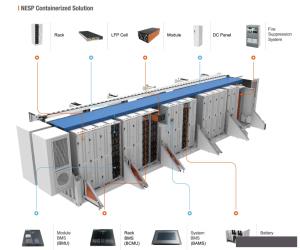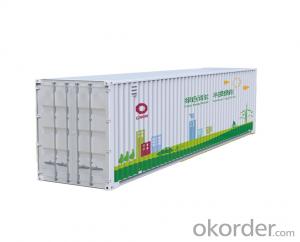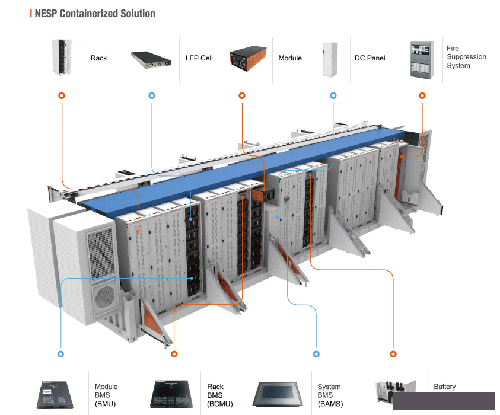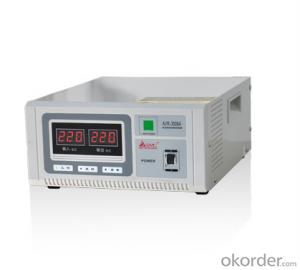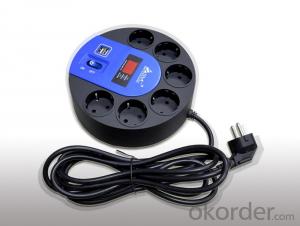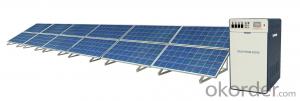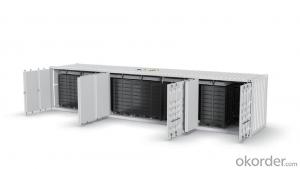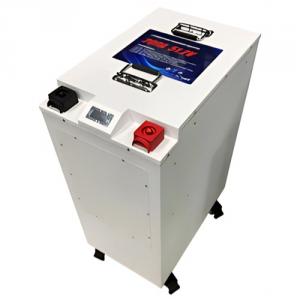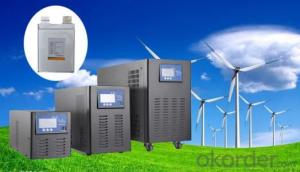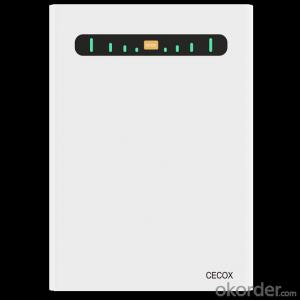1 Mwh Container Energy Storage System LiFePO4 battery for remote place ESS
- Loading Port:
- Shanghai
- Payment Terms:
- TT OR LC
- Min Order Qty:
- 1 unit
- Supply Capability:
- 50 unit/month
OKorder Service Pledge
OKorder Financial Service
You Might Also Like
Specification
Features:
1.LiFePO4 lithium battery
* Long-cyclelife (up to 2000 cycles)
* High specific energy
* High specific power,
* High energy conversion efficiency
* Easy installation
2.Intelligent battery management system(BMS)
* Precise voltage detection
* Precise current detection
* Precise temperature detection
* Precise SOC evaluation
* Battery protection
* Active balance
* Remote monitoring system interface
3.Unique Battery thermal management technology
According to aerodynamics and hydrodynamics theory, we has designed a unique thermal control system model for batteries. The model
has been extensively tested, by carrying out lots of temperature analysis experiments, to make sure optimization and uniformity
for each unit in the energy storage system is guaranteed.
Advantage:
First-class R&D team: Our R&D colleagues are from the TOP3 Lithium battery companies in China. we have very rich experience in lithium battery design, electronics, system testing and real application.
Strict Quality Control: We set a series strict QC standards include battery battery appearance, package, internal structure,charge / discharge performance, IP request etc. We strictly obey this standards to make sure every customers can get high quality battery from us.
Customer first culture: 80% of our customers are 5 years above close win-win cooperation partner. We treat our customers as our friends, family members. Every batteries we produced, sold are priceless trust from customers, so we cherish it and we keep a grateful, royalty and honesty heart to our customers.
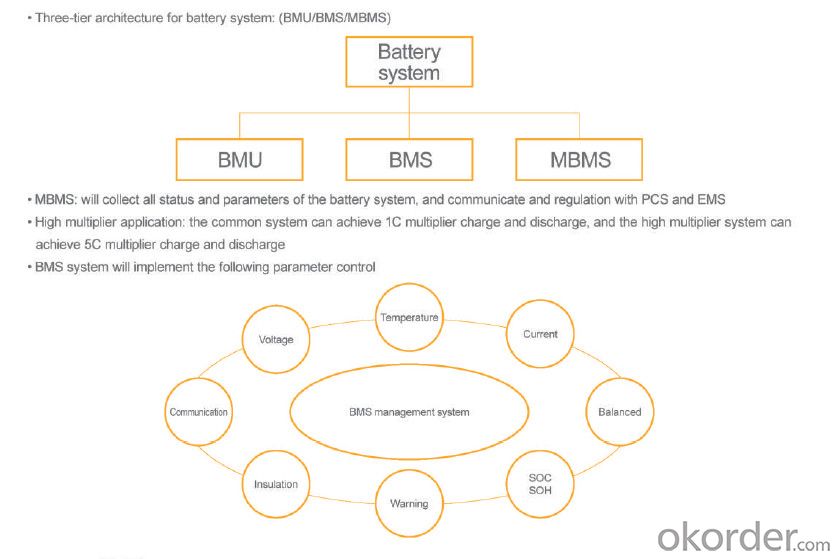
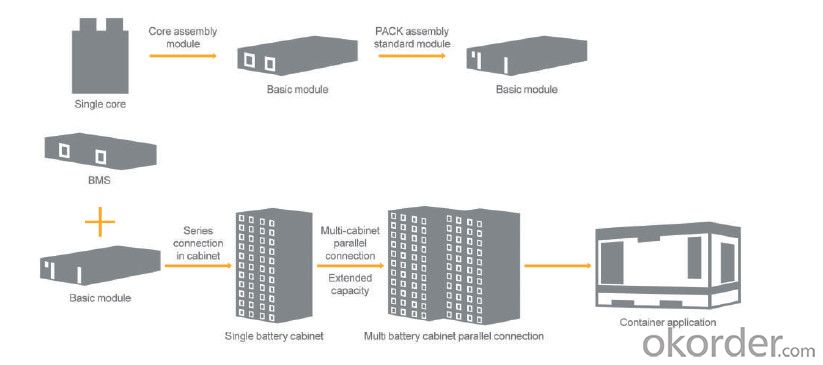
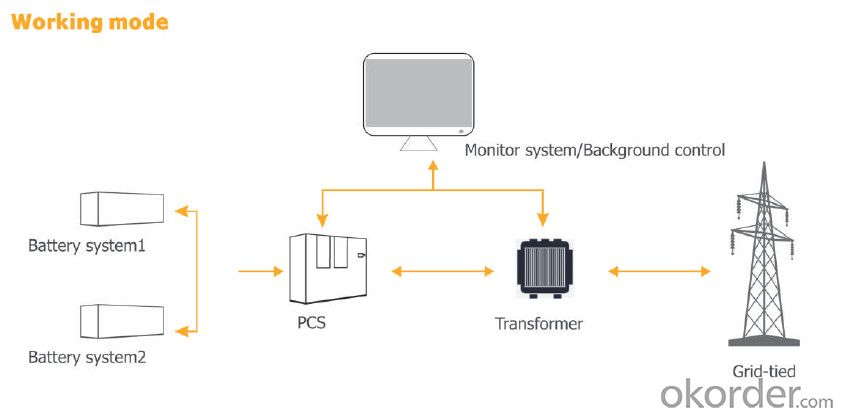

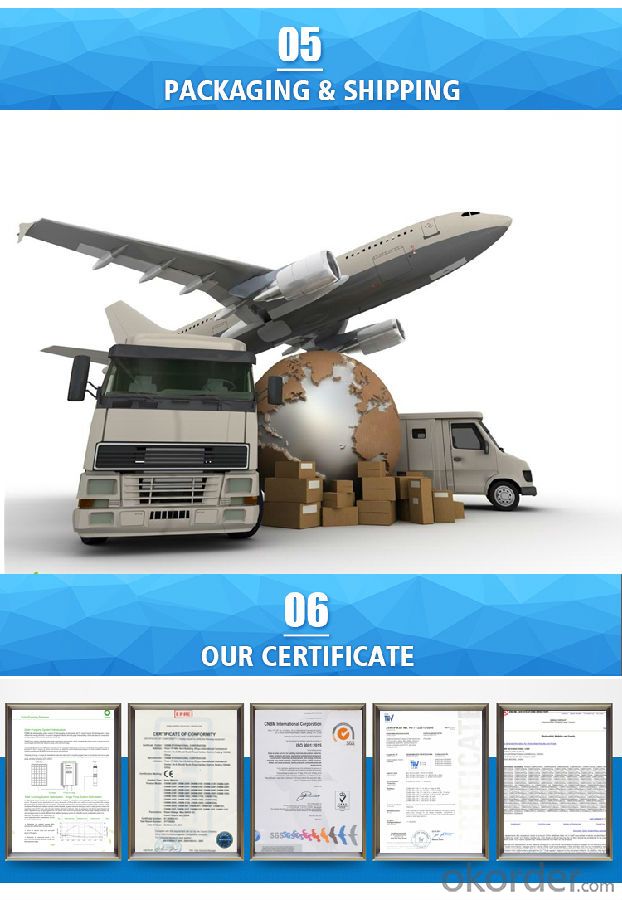
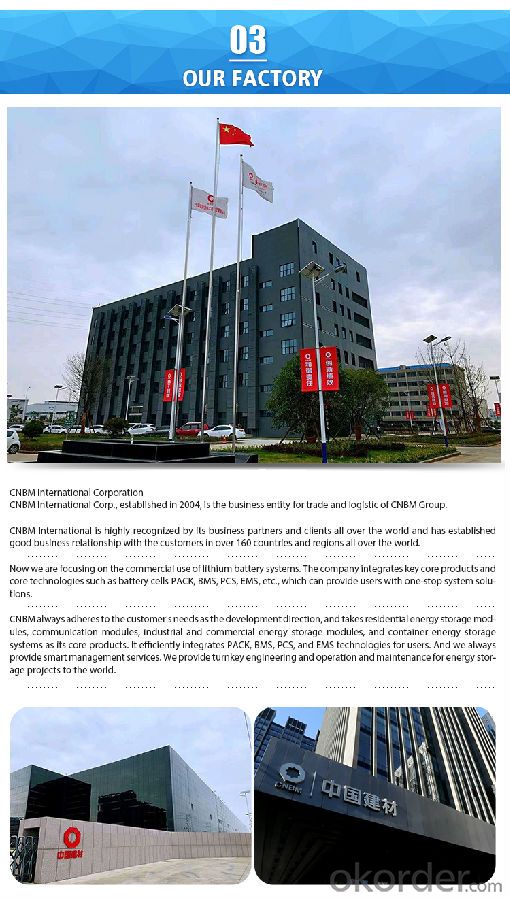
- Q: Is solar energy reliable?
- Yes, solar energy is reliable. Solar panels can generate electricity as long as they are exposed to sunlight, which is abundant and available in most regions. Additionally, solar energy systems have a lifespan of 25-30 years, and with proper maintenance, they can consistently produce power during that period. The advancements in solar technology have also made it more efficient and cost-effective, making it a reliable source of renewable energy for both residential and commercial applications.
- Q: Can solar energy systems be used in powering mining operations?
- Solar energy systems have the ability to power mining operations. This clean and sustainable source of power can generate electricity, benefiting mining operations in various ways. To begin with, mining buildings or nearby land can be equipped with solar panels to capture sunlight and convert it into usable electricity. This electricity can then be utilized to power different aspects of the mining site, such as lighting, ventilation systems, and machinery. By embracing solar energy, mining companies can decrease their reliance on fossil fuels and reduce their carbon footprint. Furthermore, solar energy systems can be combined with energy storage solutions, like batteries, to ensure a continuous power supply even when the sun is not shining. This guarantees that mining operations have a dependable source of electricity throughout the day and night, eliminating the need for backup generators or reliance solely on the grid. In addition, solar energy systems can be particularly advantageous for remote mining sites that are far from the electrical grid. In such cases, installing solar panels and battery storage systems can provide a cost-effective and sustainable solution for powering mining operations, avoiding the need for lengthy transmission lines or expensive diesel generators. In conclusion, solar energy systems have the potential to effectively power mining operations. They offer a renewable and sustainable source of electricity, reduce dependence on fossil fuels, and can be combined with energy storage for uninterrupted power supply. By embracing solar energy, mining companies can not only reduce their environmental impact but also enhance their long-term sustainability and operational efficiency.
- Q: Are there any disadvantages to using solar energy?
- Certainly, there exist a few drawbacks to the utilization of solar energy. One significant drawback pertains to the initial expense associated with the installation of solar panels. Acquiring and setting up solar panels can be rather costly, rendering it challenging for certain individuals or businesses to afford. Furthermore, the effectiveness of solar panels can be influenced by various elements such as weather conditions and the angle and orientation of the panels. Consequently, solar energy may not be as dependable in regions with limited sunlight or on cloudy days. Another disadvantage is the necessity for a substantial amount of space to accommodate the installation of solar panels, which may not be feasible for those residing in densely populated urban areas. Lastly, solar energy production is intermittent, signifying that it cannot be generated at night or during overcast periods without the employment of battery storage systems or alternative energy sources.
- Q: Can solar energy systems be used for electric vehicle charging?
- Yes, solar energy systems can be used for electric vehicle charging. Solar panels can generate electricity from sunlight, which can then be used to charge electric vehicles. This renewable energy source is environmentally friendly and can reduce dependence on fossil fuels for transportation.
- Q: Can solar energy systems be installed on historical buildings?
- Yes, solar energy systems can be installed on historical buildings. However, it is important to consider the historical and architectural significance of the building and ensure that the installation is done in a way that minimizes any visual impact or damage to the structure. Adhering to preservation guidelines and working closely with heritage conservation experts can help ensure a respectful integration of solar energy systems on historical buildings.
- Q: What is the role of solar energy systems in disaster resilience?
- Solar energy systems play a crucial role in disaster resilience by providing a reliable and sustainable source of power during and after emergencies. These systems can power critical infrastructure such as hospitals, emergency shelters, and communication networks, ensuring continuous operation and efficient response during disasters. Solar energy systems also reduce reliance on traditional power grids, which are vulnerable to damage and disruption during crises. Their ability to generate electricity independently enables communities to recover more quickly, reducing the impact of disasters and enhancing overall resilience.
- Q: Can solar energy systems be used in areas with limited access to educational resources?
- Yes, solar energy systems can be used in areas with limited access to educational resources. Solar energy systems are relatively simple to install and maintain, requiring minimal technical knowledge. Additionally, there are various resources available online and through organizations that provide step-by-step guides and training materials on solar energy systems. This enables individuals in areas with limited access to educational resources to learn and implement solar energy systems, ultimately enabling them to harness clean and sustainable energy.
- Q: Can solar energy systems be used for powering electric grids?
- Yes, solar energy systems can be used to power electric grids. Solar power plants, comprised of numerous solar panels, can generate electricity from sunlight. This electricity can be fed into the electric grid, supplementing or even replacing traditional sources of power such as fossil fuels.
- Q: What is the impact of lightning on the performance of solar panels?
- The impact of lightning on the performance of solar panels can be significant, but it is relatively rare. Lightning strikes can cause damage to the physical structure of the solar panels, such as shattering the glass or damaging the wiring. This can lead to reduced or even complete loss of power generation from the affected solar panel. Moreover, lightning can also cause electrical surges that can damage the inverter, which is a crucial component of the solar panel system responsible for converting the direct current (DC) electricity generated by the panels into alternating current (AC) electricity for use in homes or businesses. If the inverter is damaged, it can result in a complete shutdown of the solar panel system until repairs or replacements are made. To mitigate the impact of lightning on solar panels, there are several protective measures that can be taken. One common approach is to install a lightning protection system that includes lightning rods or conductive paths to direct the electrical discharge safely into the ground. This helps to prevent lightning strikes from directly hitting the solar panels and reduces the risk of damage. Additionally, surge protectors can be installed to safeguard the inverter and other sensitive electronic components of the solar panel system. These surge protectors help to divert excess electrical energy from lightning strikes away from the system, protecting it from potential damage. Although lightning strikes can pose a risk to the performance of solar panels, it is important to note that modern solar panel systems are typically built to withstand extreme weather conditions, including lightning. Manufacturers often subject their panels to rigorous testing to ensure their durability and resistance to lightning strikes. Overall, while the impact of lightning on solar panels can be disruptive and costly, implementing proper protective measures can help minimize the risk and ensure the long-term performance and reliability of the solar panel system.
- Q: Do solar panels work on cloudy days?
- Yes, solar panels do work on cloudy days, although their efficiency is reduced. While direct sunlight is optimal for generating electricity, solar panels can still convert diffuse sunlight into energy, albeit at a lower rate.
Send your message to us
1 Mwh Container Energy Storage System LiFePO4 battery for remote place ESS
- Loading Port:
- Shanghai
- Payment Terms:
- TT OR LC
- Min Order Qty:
- 1 unit
- Supply Capability:
- 50 unit/month
OKorder Service Pledge
OKorder Financial Service
Similar products
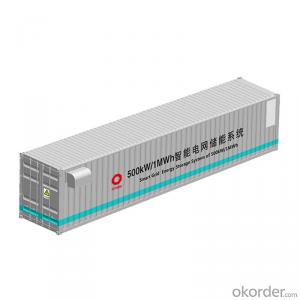
Zen Solar Energy Systems - ESS Solar Energy Storage System 500kW 1MWh with LifePO4 Battery Container
Hot products
Hot Searches
Related keywords
